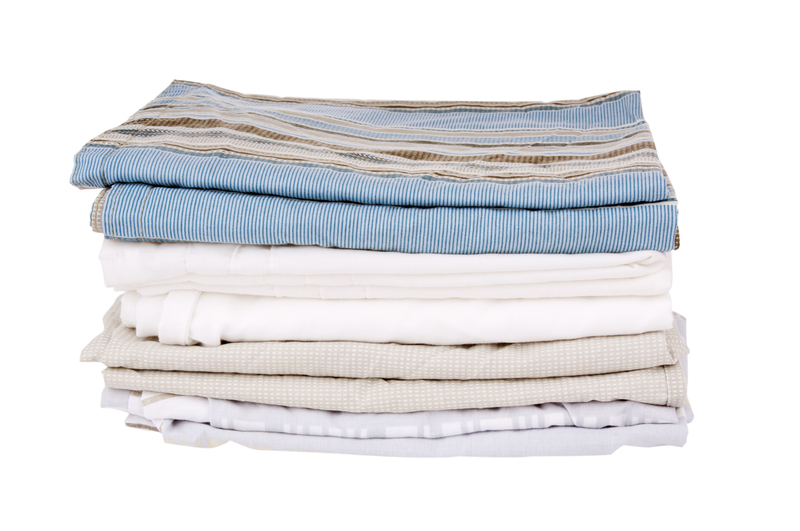Let Go of the Excess with Supportive Hoarder Clean Up and Clutter Solutions
In today's fast-paced world, it's all too easy for possessions to accumulate, rooms to fill, and spaces to become overwhelmed by clutter. While a bit of mess is normal in the ebb and flow of daily life, excessive clutter can become a burden, impacting mental health, relationships, and overall quality of life. For many individuals, especially those facing hoarding disorder or lifelong patterns of collecting, tackling these challenges alone can feel impossible.
This comprehensive guide explores practical, compassionate, and supportive hoarder clean up and modern clutter solutions that can help you or your loved one reclaim their space, restore peace of mind, and build healthier habits for the future.

Understanding Hoarding and Chronic Clutter
What is Hoarding?
Hoarding is more than just clutter. It's a complex behavioral health condition marked by the inability to discard possessions--regardless of their monetary value--because of a perceived need to save them. Over time, items pile up, living spaces disappear beneath mounds of belongings, and the hoarder's day-to-day life becomes increasingly restricted.
- Emotional Attachment: Objects may offer comfort, security, or a sense of identity.
- Decision Paralysis: Difficulty choosing what to keep or throw out leads to inaction and build-up.
- Avoidance: Feelings of shame or overwhelm prevent tackling the problem alone.
How Clutter Impacts Your Life
Whether you're dealing with hoarding or chronic disorganization, excess clutter can have far-reaching consequences:
- Physical risks: Increased chances of trips, falls, fires, and infestations from gross filth.
- Mental strain: Anxiety, depression, and shame are common among those surrounded by chaos.
- Relationship friction: Loved ones may feel frustrated, helpless, or even distance themselves.
- Financial costs: Lost bills, missed opportunities, and money wasted on redundant purchases.
By recognizing the signs and acknowledging the impact, you've already taken the crucial first step towards letting go of the excess and embracing transformative hoarder clean up and clutter solutions.
Why Supportive Hoarder Clean Up Matters
The Power of Compassionate Assistance
Tackling excessive clutter without support is daunting and often unsuccessful. Supportive hoarder clean up services are designed to meet clients where they are--emotionally, physically, and mentally--ensuring the process is as gentle as it is effective.
- Non-judgmental approach: Professional clean up teams provide empathy, not criticism, recognizing that every situation is unique.
- Collaborative decision-making: The individual remains in control, making choices at their own pace with encouragement and respect.
- Sustainable changes: Beyond tackling the current mess, a supportive approach teaches new habits, helping to prevent future relapses.
Benefits of Hiring Hoarder Clean Up and Clutter Specialists
From expert organization to safe disposal and emotional coaching, there are compelling reasons to seek out professional support:
- Efficiency: Trained teams can address what may take months to clear in just days or weeks.
- Experience: Specialists understand the deep roots of hoarding and chronic clutter, ensuring sensitive and effective solutions.
- Safety: Handling heavy lifting, biohazards, or hazardous materials is best left to professionals.
- Ongoing support: Follow-up sessions, maintenance plans, and referrals to counseling or therapy empower long-term success.
Sensible Steps for Effective Hoarder Clean Up
1. Preparation and Planning
Before you begin, assess the situation calmly. Document rooms, make a list of problem areas, and identify health or safety concerns. Recruit help from family, friends, or professionals as needed.
- Set goals: Focus on one room or area at a time to prevent overwhelm.
- Gather supplies: Trash bags, cleaning products, boxes for donations, gloves, and masks if needed.
- Clear communication: If working with a hoarder, ensure a shared understanding of the process and timeline.
2. Sorting and Categorizing
Use the tried-and-true "four-box method": keep, donate, discard, and relocate. Make quick decisions to maintain momentum, and celebrate each small victory.
- Ask essential questions: When was this item last used? Does it serve a current or future need? Would someone else benefit from it?
- Be gentle with sentimental objects: Set them aside for special consideration or a memory box.
- Don't force discarding: Respect the individual's boundaries and emotional limits throughout the process.
3. Deep Cleaning and Sanitation
Many hoarding situations involve spoiled food, forgotten waste, or hidden pest infestations. Deep cleaning ensures the space is not just uncluttered, but also healthy and pleasant to inhabit.
- Wear protective gear: Masks, gloves, and goggles may be necessary for biohazardous areas.
- Focus on ventilation: Windows and fans help clear out dust and odors.
- Thoroughly sanitize: Clean all surfaces, floors, and fixtures to restore the home to a livable state.
4. Organization and Prevention
Real progress means putting systems in place to stop future build-up. Invest in simple, sustainable clutter solutions:
- Clear storage bins: Label boxes clearly for easy access and maintenance.
- Shelving & hooks: Utilize vertical space to keep floors clear and items accessible.
- Donation stations: Set up a designated spot for items to regularly give away.
_Most importantly_, review and reset systems on a regular basis--the journey towards a clutter-free life is ongoing.
The Importance of Emotional Support during Hoarder Clean Up
Understanding the Emotional Toll
It's essential to remember that decluttering isn't merely a physical task. Feelings of fear, guilt, grief, and even anger are common and valid responses. Many hold onto items linked to significant losses, trauma, or memories. Rushed or insensitive approaches can do real harm, potentially deepening attachment to possessions.
- Offer patience and empathy: Celebrate every bit of progress, no matter how small.
- Involve mental health professionals: Therapy or counseling can help untangle deeper issues behind hoarding behaviors.
- Practice self-care: Recognize your limits and set healthy boundaries for yourself, whether you're the individual cleaning or a helping friend.
Innovative Clutter Solutions for Lasting Change
Best Practices for Maintaining a Clutter-Free Home
- Develop routines: A daily 10-minute tidying session can prevent clutter from returning.
- Set clear boundaries: Assign purpose to each room and only allow related items to live there.
- One-in, one-out: For every new item, donate or discard an old one.
- Digitize when possible: Scan and store important documents or sentimental items to reduce physical buildup.
Over time, these small yet intentional choices build up, replacing chaos with calm and maintaining the hard-won benefits of supportive hoarder clean up.
Modern Tools to Aid Your Efforts
Thanks to technology, a variety of apps and organizing tools are available to help users avoid relapse into old habits:
- Inventory management apps to track what you own and avoid unnecessary purchases.
- Calendar automations for regular clean-out reminders, deep cleans, or donation pickups.
- Photo catalogs to digitally preserve sentimental items you're ready to let go of physically.
Choosing the Right Clutter and Hoarder Clean Up Service
Questions to Ask Before Hiring
With the right cleanup partner, you can trust that your space and your story are in good hands. Consider the following before making your choice:
- Is the team experienced with hoarding situations?
- Do they work in a non-judgmental and compassionate manner?
- Are they licensed, insured, and able to handle biohazards if necessary?
- Will they help set up long-term clutter prevention strategies?
- Can they offer referrals to mental health or additional support professionals?
A reputable clutter solution company will tailor their services to your unique needs, empowering you to restore your life at a pace that feels right.

Stories of Hope: Life After Decluttering
As daunting as the journey may seem, countless individuals have transformed their lives with the help of dedicated hoarder clean up professionals. Here are just a few examples of the lasting impacts:
- Renewed relationships: Families reconcile, and friends return to once-shunned homes.
- Improved health: Allergy and asthma symptoms lessen, and falls become far less likely.
- Opportunities regained: Spare rooms become art studios, guest bedrooms, or home offices.
- Peace of mind: The crushing weight of "too much stuff" is finally lifted, replaced by clarity and confidence.
Conclusion: Your New Beginning Starts Now
Letting go of the excess is about much more than clearing a cluttered room--it's a profound act of self-care and a step toward a brighter future. With the right supportive hoarder clean up approach, compassion, and ongoing clutter solutions, you can reclaim your space and rediscover the comfort of a true home.
If you or someone you love needs help, don't hesitate to reach out to experienced professionals who provide both practical and emotional assistance every step of the way. Let go of the excess and embrace a life filled with possibility.
- Start small and celebrate every step forward
- Seek help when you need it
- Remember: you are not alone on this journey
For more resources, or to find a hoarder cleanup specialist near you, explore reputable local providers and online support communities today.
```